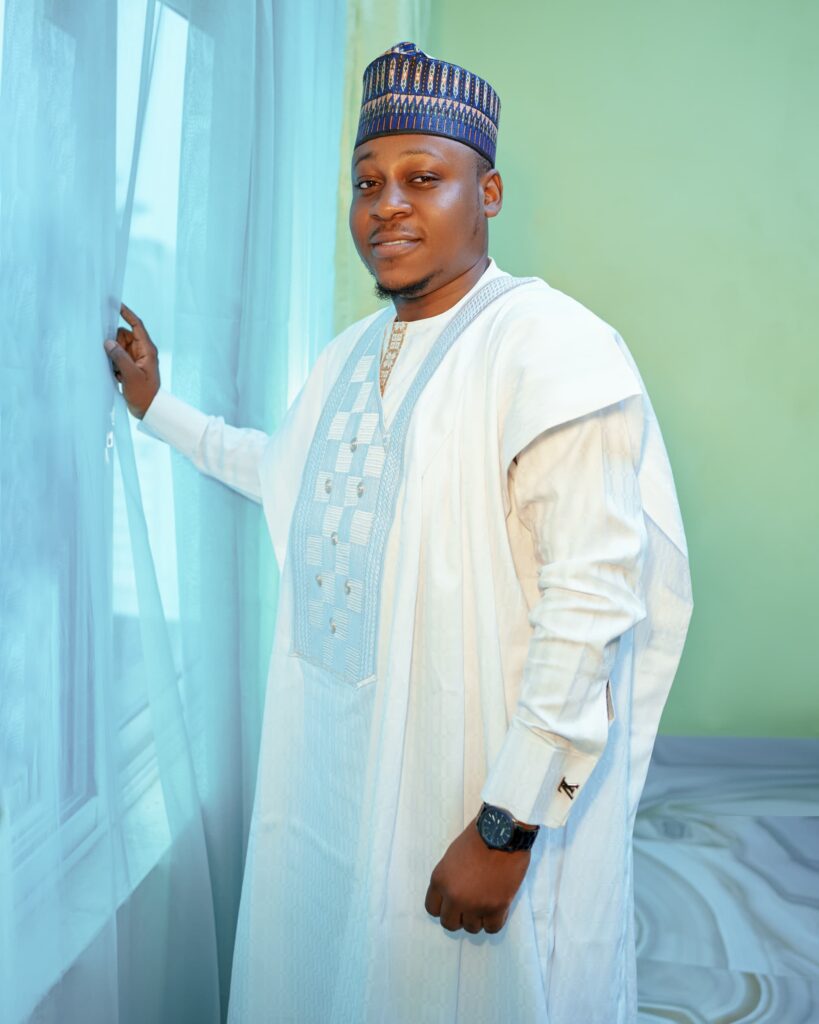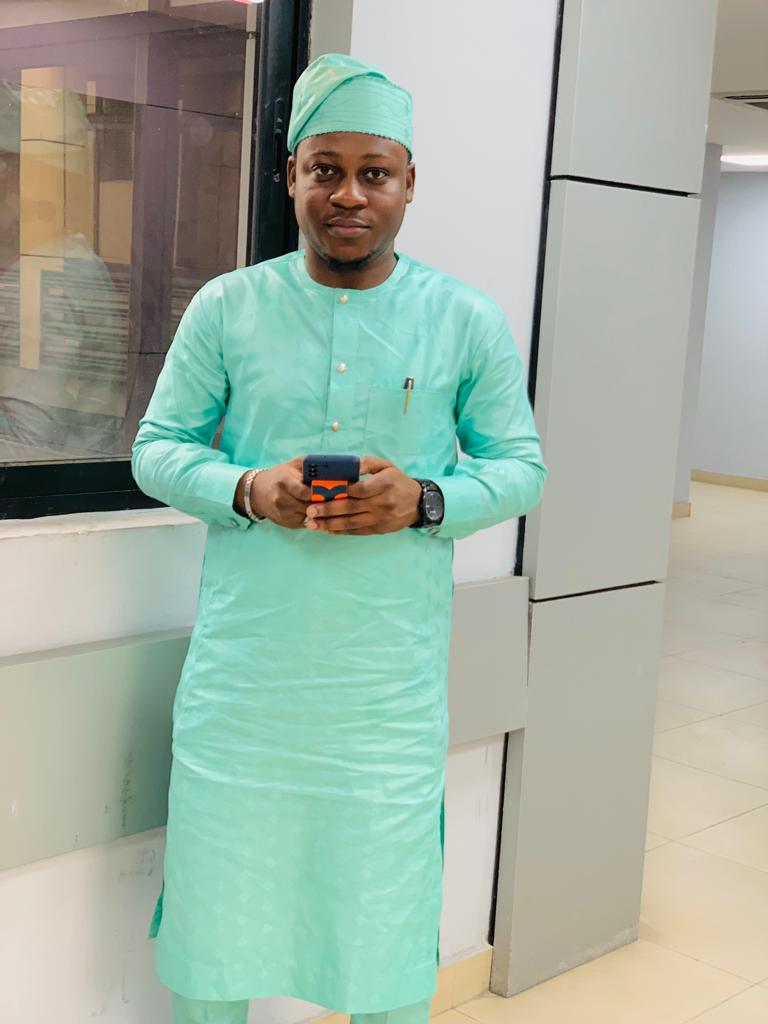Umar Shiru is an Employee and Labour relations manager with the Nigerian Ports Authority in Lagos, Nigeria. Most importantly, Umar is a Nigerian reformist who believes in a safe, stable, and successful future for Nigeria. He has founded an initiative called ‘A Nation Called Nigeria’ (ANCN) to unite Nigeria against segregation and injustice. Umar has a Master’s in Peace, Conflict, and Strategic Studies and is an aspiring PhD candidate in Conflict Resolution. It is undoubtedly apparent that his ambition, compassion, and expertise will bring forth great change to Nigeria and around the world.
I was born in Kwara State in Nigeria. I am from a family of five, two sisters and then my parents who were all born in Kwara State as well.
I lived with my grandmother from age three years until I was 25. In our culture, we call ourselves Yoruba and Fulani which are part of the ethnic groups in Nigeria. We have a cultural world that believes in a king named Emir. He oversaw the affairs whenever we had issues which I got to know very well growing up.

Yes, she is late now but she was deep in the culture because she is really from the origin and could tell us more about it. But as a young lad, I wanted to move on with my life and didn’t want to participate in all these activities. One part of me wanted to immerse in the culture and another part of me saw my mates growing up and I thought, “Okay, maybe I’m not going to get stuck here and move forward.” My grandma really took care of me and she taught me how to cook. She also taught me how to treat a lady and always told me that I should be kind to people no matter what they do to me, so that became my mantra growing up. I want to be kind to people no matter what you do to me because I know that we can’t all be the same. We all have different things we are dealing with, so at the end of the day, we should be nice to each other.
My grandmother was a chief typist with the local government so she didn’t have a lot of time to be with me. When I wanted to go to high school, which we call secondary school, I couldn’t stay so I was moved to a boarding house. I had to move to another state entirely and there were no visitations, no cellphones, or a way to communicate with my grandmother. The only thing I could do was tell my Uncle who used to work in the school to give my message to her whenever he travelled to our hometown. At the boarding school, unfortunately, we were bullied since we were new. It was more like survival rather than studying, we just wanted to have a normal life, but these bullies were everywhere. There was no way I could report this because the people you ought to report to will tell you this is normal. It was a five-year period where everything became so difficult. There was no way I could report to anybody because nobody would listen to me so I had to endure until I finished and academically it affected me. I would run for my life, trying to survive day by day just to get to live to tomorrow.
Yeah, I wanted to be a lawyer. At that time, whenever there was an issue with a group of people or in the house, I was always the first to come and defend those who needed it. One thing I was good at was how to argue. If I argued against you, there was no way you were winning that case. I had an auntie who told me, “I’ve seen how you argue, how about you become a lawyer?”
Everything changed when I gained admission into the university and I didn’t get the law course I wanted so I was told to do History and International Studies and later could move. Unfortunately, moving was difficult so I stayed with history and International Studies and moved to Peace and Conflicts Studies for my masters. The most important thing I wanted was to become a mediator. I wanted to help people defend themselves and thought, “How about if I become a mediator that prevents conflict?”

Yes, we actually do. I am a Muslim and we have a festival called Eid-el-Kabir which we celebrated recently. We have what is called the durbar where we go to the Emir’s palace to say thank you for hosting us this year and then a mini celebration to talk with different communities. Then you come back to your own family and report to the oldest member of the family who will give you the gifts that you present to the Emir or they get to present it themselves and the Emir will accept it and express his gratitude before he moves back to his own house.
Growing up we were taught that it is a religion of peace and whatever the situation, don’t be violent. I didn’t choose my religion to be clear, I was born into it. When I got to a particular age, I did a proper evaluation and I felt I could continue with it. As a religion of peace, it has most importantly taught me what I have been advocating for.
The situation in the country is bad, a lot of people are giving up and a lot of people are moving to different countries to seek greener pastures. But, I have this belief that Nigeria can be great again. I have to go back to when I was growing up when the kid next to me would never differentiate. At this time it was more about “You’re not from here, but I don’t care I just want to play with the kids that are available.” Nothing segregated us, we all won, and we all played together. Now a lot of people don’t want to associate with someone from a different tribe. Our diversity has become a liability instead of an asset, and that’s the mindset I want to change about people. This initiative would give me the platform to call in as many people as possible to change the mindset and I can change it just one person at a time.
I don’t want to be judged, but I don’t know if it is going to happen in my lifetime. There is this quote that when an old person plants a seed, he or she knows it’s not going to be a tree farm in their lifetime. My vision is for Nigeria to be a great country again. I don’t know if it’s going to happen in my lifetime, but I’ll try as much as possible to change one person at a time.
